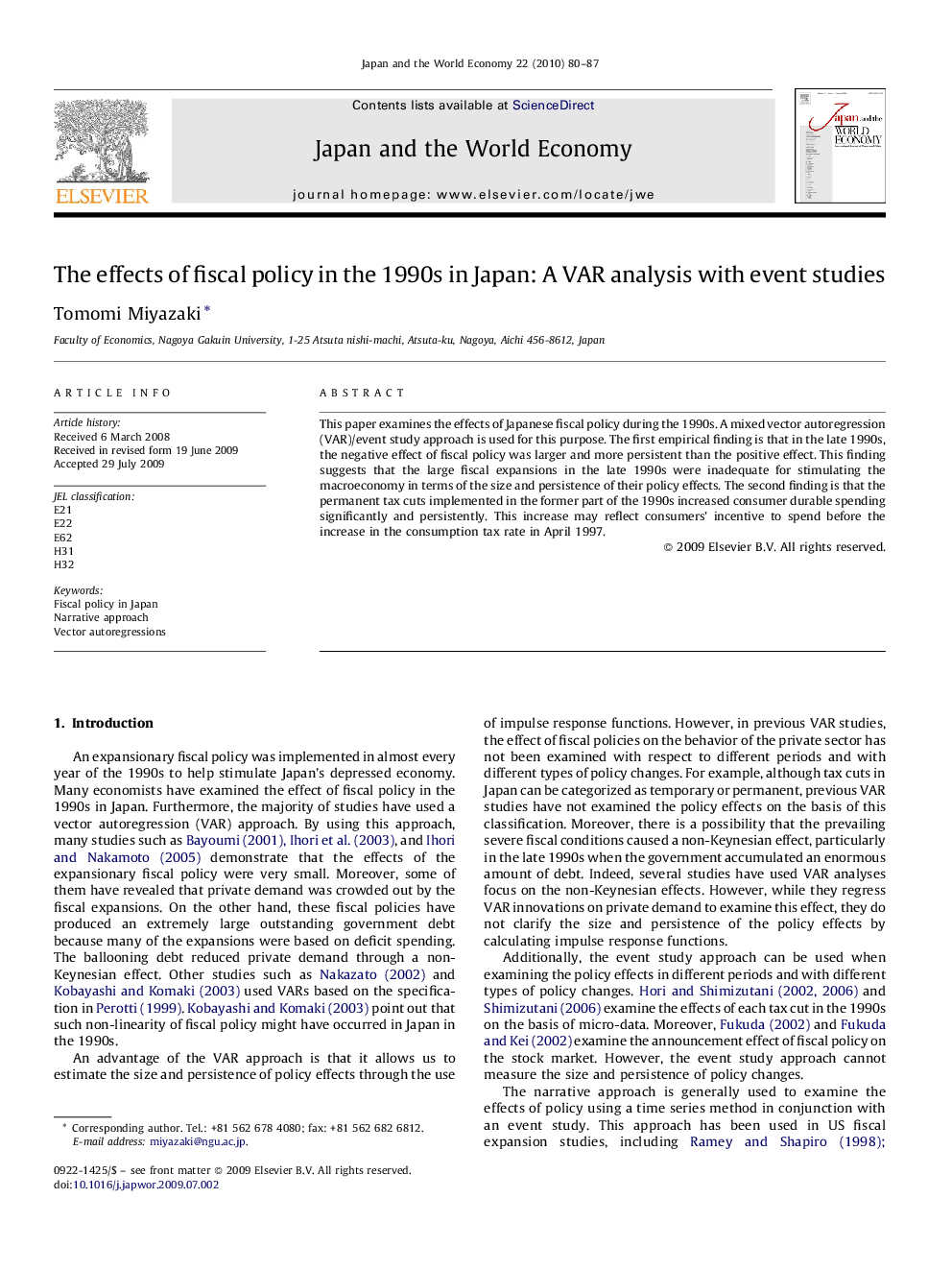| Article ID | Journal | Published Year | Pages | File Type |
|---|---|---|---|---|
| 5086279 | Japan and the World Economy | 2010 | 8 Pages |
Abstract
This paper examines the effects of Japanese fiscal policy during the 1990s. A mixed vector autoregression (VAR)/event study approach is used for this purpose. The first empirical finding is that in the late 1990s, the negative effect of fiscal policy was larger and more persistent than the positive effect. This finding suggests that the large fiscal expansions in the late 1990s were inadequate for stimulating the macroeconomy in terms of the size and persistence of their policy effects. The second finding is that the permanent tax cuts implemented in the former part of the 1990s increased consumer durable spending significantly and persistently. This increase may reflect consumers' incentive to spend before the increase in the consumption tax rate in April 1997.
Related Topics
Social Sciences and Humanities
Economics, Econometrics and Finance
Economics and Econometrics
Authors
Tomomi Miyazaki,
